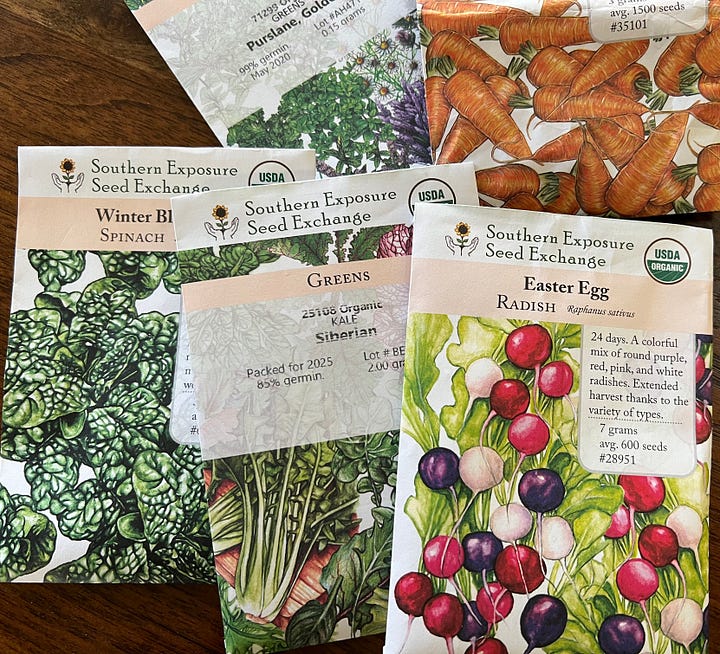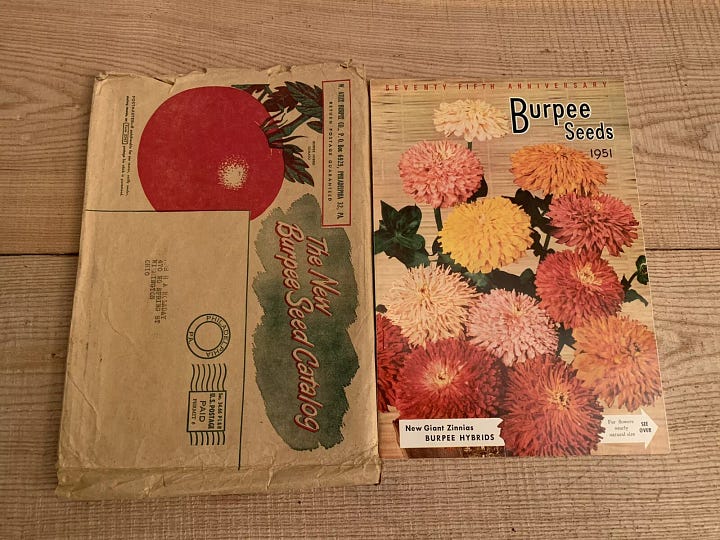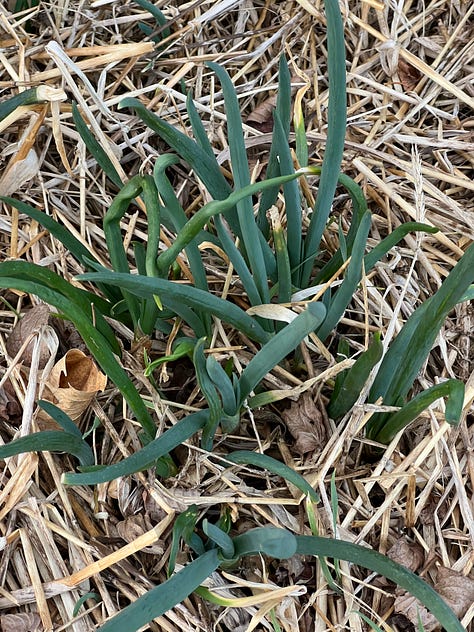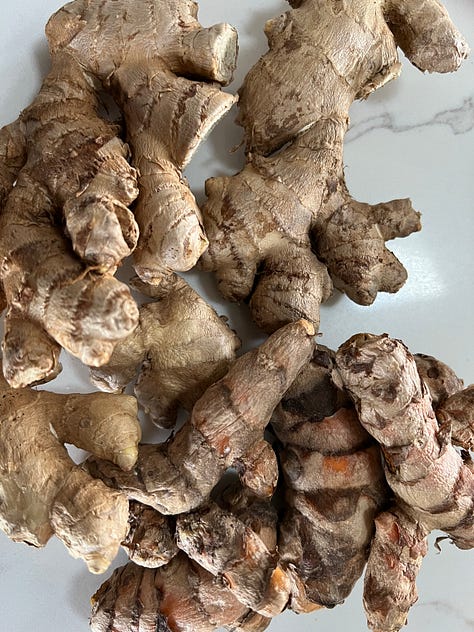Things Are Falling Apart – and I Can’t Stop Thinking about Seeds
At least for today, I'm about seeding a future.
Each one of us descends from people who have been in an intimate and reciprocal relationship with plants and seeds since the dawning of time. ~ Rowen M. White


Colorful illustrations lure me to a display of packets of pure potential as I fill my basket with fresh greens at the coop. And it’s not just there. Conveniently close to the check out at the Community Garden Market, the rack of good things is even more compelling than the strategically placed chocolate from around the world. But just in case I need a further dose of possibility, an old shoebox in my cupboard holds seed packets purchased last fall along with some partially empty ones from years gone by. Seeds are dreams of goodness in the making, stirring images of wholesome foods with fresh-from-the-garden taste that simply cannot be replicated. Recall the bright taste of a cherry tomato right off the sun-soaked vine or a perfectly ripe blueberry fresh from the bush, and you know the gift of which I write.
I learned the lure of seeds in childhood. After weeks of dog-earring pages in the Sears Christmas catalog, a new year would come round, and our family’s attention turned to gardening. When the Burbee Seed catalog arrived, I was just as eager to turn the pages as my parents. That treasure trove of colorful plants blends with memories of shelling peas of exquisite sweetness as I sat beside my mother on the back steps. Soon to follow was the first batch of fresh green beans simmering in the pot with onions, tiny new potatoes, and lots of pepper. Leaf lettuce, so distinct from the iceberg we bought at the store during the winter, could be had every night. Cucumbers and tomatoes lined the small kitchen counter until they could be eaten or canned and stored in the cellar awaiting a winter meal. And oh, the delight of sweet corn, shucked on those same back steps and eaten with rich, creamy butter churned by our neighbors. Seeds store memories of the past and hope for the future.


Burpee Seeds was founded in 1876 by Washington Atlee Burpee in Philadelphia,PA, expanding his mail-order chicken business when customers asked for seeds from their homeland. Burpee traveled to Europe to collect seeds, bringing them back to his experimental field test station. His son David inherited the business in 1915 and moved the focus to seeds and the promotion of Victory Gardens. Also referred to as “war gardens,” these food gardens were intended to boost morale and supplement the food supply in the US, Canada, Britain, and Australia.1
The need for a victory garden in the face of war had passed by the time I came along, but perhaps the importance of being somewhat food sufficient lingered in the minds of my parents. Or perhaps they simply enjoyed having their hands in the soil and relished thoughts of the bounty to come. I don’t know. I know that they planted seeds every spring well into their 90th years. It’s a tradition I’m honored to continue.
*****
Excerpts from the website of Southern Exposure Seed Exchange:
Black-Seeded Kentucky Wonder Pole Snap Bean -- Maturing in 75 days, discover the heritage of this Central Ohio heirloom, a testament to the gardening legacy preserved by Tom Knoche’s Aunt Marge for sixty years! This variety not only boasts excellent germination even in cool soil but also delights with its rich flavor and pleasing texture.
Dean’s Purple Pole Snap Bean -- Maturing in 52 days, behold a family heirloom from Tennessee, generously shared with us by seed savers Mark Schonbeck, Valerie Lyle, and Dean Turley. Dean, receiving the beans as a thoughtful gift from a student, traces their origin to Frost Bottom, TN, where they took root in the soil 150 years ago.
Cherokee Cornfield Pole Snap Bean -- Maturing in 58 days, cultivate this heirloom adorned with charming earth tone shades and distinctive markings. With deep appreciation for the Cherokee people, to whom this bean owes its origin, witness the beauty of this variety that yields well, especially when grown alongside other corn stalks—a testament to the rich agricultural traditions of the Cherokee Nation.
Genuine Cornfield Pole Snap Bean (Scotia, Striped Creaseback) -- Maturing in 83 days, this bean, potentially of pre-Columbian origin, stands as one of the oldest cultivated by the Iroquois, who esteemed it for corn soup and bread.
Southern Exposure Seed Exchange is a worker-run cooperative in the rolling hills of Virginia between Richmond and Charlotte. I have loved this group ever since I heard author, educator, and godmother of this seed saving community Ira Wallace speak about the power of seeds. Enthusiastic and open, she awakened me and countless others to the need for genetic diversity of plants that will only happen if we save seeds and pass them on. (The genetic diversity of agricultural crops is owned by four multi-national companies that are also in the pesticide business.)
Seed Savers Exchange has been encouraging the sharing of seeds for 50 years. “…(T)oday SSE houses the nation’s largest nongovernmental seed bank of its kind (some 20,000 varieties) at Heritage Farm, 890 scenic acres in Winneshiek County, Iowa.” Co-founder Diane Ott Whealy explains why their work is so important: “In the last century or so, the world has lost 75 percent of its edible plant varieties. A system that depends so heavily on so few crops is extremely fragile. When seed diversity is strong, our food system is protected, as this diversity increases the likelihood of having crop varieties that can adapt to different climate conditions and become resistant to certain diseases.”
As you might expect, not everyone is on board with the idea of saving and exchanging seeds. Sharing seeds with your neighbors means less money for large seed companies. And then there’s this point of view chronicled in a 2017 Mother Jones article about why we need laws to ban saving seeds: “We don’t believe the locals have the science that the state of Texas has,” said Jim Reaves, legislative director of the Texas Farm Bureau. “So we think it’s better held in the state’s hands. It will basically tell cities that if you have a problem with a certain seed, the state can ban it, but you can’t.”2
I can’t help but wonder what Tom Knoche’s Aunt Marge who grew those Black-Seeded Kentucky Wonder Pole Snap for sixty years, carefully saving seeds from each harvest, would think about the state questioning her knowledge. And I’m pretty sure the Genuine Cornfield Pole Snap Bean of pre-Mayan origin didn’t have the then-non-existent state of Texas checking to see if the planters got the science right.
Carried in the pockets of immigrants, woven into the braids of enslaved people, and given as gifts to the future throughout generations, seeds speak of hope. Not a false hope that denies the reality of too much rain, drought, hungry animals, or early frosts. A hope that speaks of a gift wrapped within a tiny packet, sheltered within a protective coat that can burst into life or lie dormant for years until conditions are right for it to become what it was always meant to be.3
So much is falling apart, so many hopes have been compromised. Seeds carry the essence of the plants they will become. Sometimes incredibly tiny, they hold the promise and possibility of future abundance. Powerless in appearance, they wait in the dark until the time is right and then, against all odds, open to beauty. Collectively, they create a garden of nourishment – a Victory Garden of sorts that may in and of itself be an act of resistance against division and hate. After all, it’s difficult to be angry in a garden. And when seeds have become plants and given the fruits of their bodies, they give one last gasp to produce more seeds, offering life and hope for the future.



In-Person Retreat Offerings — Join me for an extended time to connect to Earth and center down. It’s important to walk among the trees in this time on the edge.
Discovering the Spiritual Wisdom of Trees: Collaboration and Communication. March 22, 2025, 10am to 4pm, at Well for the Journey, Lutherville-Timonium, MD. Leader: Leah Rampy. Information and registration <Last chance; only a few seats left.>
Singing the Trees: Reweaving Connections in Edge Times. April 11 - 13, 2025, Wellspring Retreat Center, Germantown, MD. Leaders: David and Leah Rampy; Lindsay McLaughlin. Registration and Information




Thanks for this lovely article, Leah. Now I want to get my garden planted!
You know being somewhat food sufficient could not hold a tomato stake to fresh off the vine, or putting the water on to boil before picking the corn. Life does not get better than gathering to prepare and eat garden fresh produce. Money just does not compare to good food and fellowship. Great article.